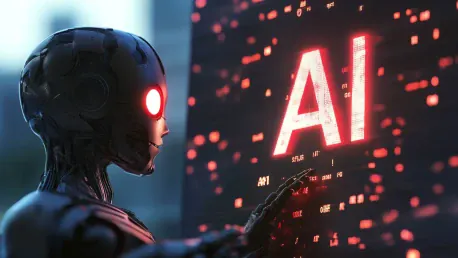In a recent address at the Frank Sinatra School of the Arts in Astoria, Queens, New York City Public Schools Chancellor David C. Banks unveiled a bold vision for integrating artificial intelligence (AI) into the city’s educational system. During his speech, titled “State of Our Schools,” Banks passionately argued that traditional evaluation methods are outdated and no longer serve the dynamic needs of today’s students. He emphasized that AI offers a transformative approach to assessing students’ work, including homework, classwork, and tests, allowing for real-time evaluation and more personalized feedback. This, according to Banks, could provide educators with daily insights into each student’s progress, significantly enhancing the teaching and learning experience.
Banks did not merely present AI as a futuristic concept but also highlighted current applications and potential expansions. For instance, he introduced Eureka, an AI-powered chatbot designed to handle various administrative tasks, thereby reducing the burden on school staff. Moreover, Banks outlined plans for using AI in areas such as transportation, enrollment, and hiring, suggesting that these innovations would improve efficiency and save time and money. He stressed that the ultimate goal is to create a robust, effective school system that better serves students, families, and educational professionals.
Transforming Traditional Evaluation with AI
One of the pivotal points in Chancellor Banks’ speech centered on the limitations of traditional evaluation methods in education. He pointed out that most conventional systems lag in providing timely and specific feedback to teachers and students. AI, however, has the potential to radically alter this paradigm by offering dynamic, real-time assessments. Utilizing sophisticated algorithms, AI can analyze coursework more quickly and accurately than human evaluators alone, thereby enabling a more responsive approach to educational needs. Teachers armed with this real-time data can identify gaps in knowledge or understanding as they occur, providing timely interventions that bolster student performance.
Banks highlighted that this level of ongoing assessment would allow for a more nuanced understanding of each student’s unique learning trajectory. Instead of generic, end-of-term report cards, educators would have access to detailed progress reports, enabling them to tailor their instructional strategies. He argued that this capability could significantly elevate educational outcomes, turning schools into adaptive, student-centered environments. This doesn’t just streamline teaching but also helps students by identifying their strengths and areas needing improvement in a timely manner, making education a more engaging and effective experience.
AI in Administrative Functions
Chancellor Banks also focused on the administrative prowess of AI, introducing tools like Eureka to illustrate the immediate benefits of this technology. Eureka, an AI chatbot, was shown to be adept at handling routine administrative tasks such as scheduling, data entry, and communication, thereby freeing up time for teachers and administrators to focus on more impactful activities. The aim is to create a more efficient school system where human resources are allocated to tasks that require critical thinking and human interaction, while repetitive and time-consuming duties are delegated to machines.
Furthermore, Banks announced plans to expand AI’s role in operational areas like transportation and enrollment. For instance, AI could optimize bus routes, reducing travel times for students and cutting costs for the district. In terms of hiring, AI can streamline the recruitment process by efficiently scanning resumes and identifying candidates who best match the school’s requirements. These implementations would not only save time but also create a system that’s more responsive to the needs of its stakeholders.
Preparing Students for the Future Workforce
Banks highlighted the necessity of equipping students with AI-related skills, preparing them for an increasingly tech-centric labor market. He stressed that while AI can automate many tasks, it also creates new opportunities for jobs that didn’t exist before, such as AI trainers, ethicists, and engineers. By incorporating AI into the curriculum, schools can provide students with the knowledge and skills they need to thrive in the future workforce. This approach ensures that students are not merely consumers of technology but also contributors to its development.
However, Banks was clear in stating that AI is not intended to replace the human aspects of education. Teachers, counselors, and support staff remain indispensable, providing the empathy, creativity, and social skills that machines cannot replicate. Instead, AI is seen as a valuable tool that can enhance the quality of their work. For example, with AI handling administrative tasks, teachers can devote more time to personalized instruction and mentorship. This balance ensures that while technology plays a significant role, the human touch in education remains paramount.
Holistic Educational Environment and Support Systems
In a recent speech at the Frank Sinatra School of the Arts in Queens, NYC Public Schools Chancellor David C. Banks detailed an ambitious plan to integrate artificial intelligence (AI) into the city’s educational framework. Titled “State of Our Schools,” Banks argued that the traditional ways of evaluating students are outdated and don’t align with the modern needs of today’s learners. He emphasized that AI can revolutionize how student work is assessed, providing real-time evaluations and personalized feedback for homework, classwork, and tests. This technology, according to Banks, would offer educators daily insights into each student’s progress, fundamentally enhancing both teaching and learning experiences.
Banks not only presented AI as a future possibility but also highlighted its current uses and future expansions. He introduced Eureka, an AI chatbot that handles administrative tasks, thereby easing the workload on school staff. Additionally, Banks laid out plans to apply AI in areas like transportation, enrollment, and hiring, all aimed at boosting efficiency and cutting costs. He concluded by stressing that the overarching goal is to develop a more effective school system that better serves students, families, and educators alike.









